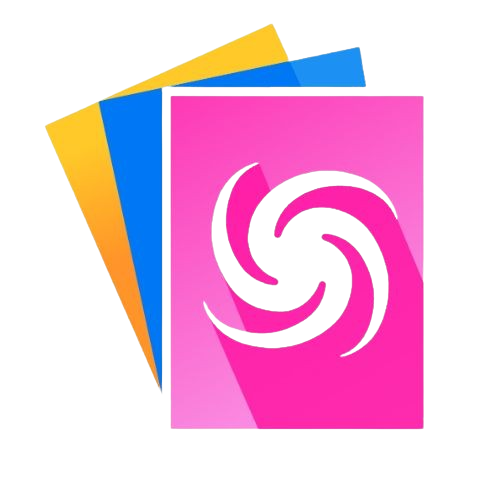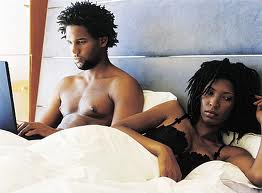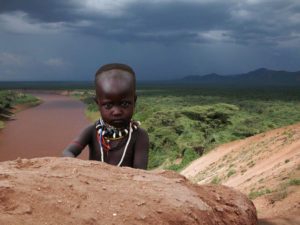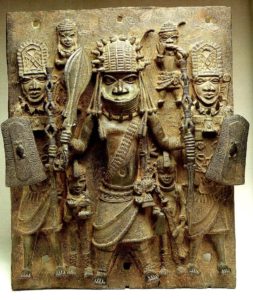Sacred Visions and the Wisdom of Your Heart
Whenever I’m asked what Across The King’s River is all about, I always say it’s a documentary about finding and fulfilling your life’s purpose. In the film, I’ll be taking my daughter to meet some of the great healers and diviners of West Africa, and we’ll be sharing some of their insights with the world.
Our journey will take us into the spiritual worlds of the Yorubas of Southwest Nigeria, the Dagara of Burkina Faso and the Lebu of Senegal. An international team of scholars will also share their insights on the significant contributions of African wisdom to the modern in my film; we hope to inspire you to follow your visions as we showcase the sacred and healing traditions of Africa.
The tagline of the film says “the vision is ready when you are.” We say this because we deeply believe in the power of visions. We believe that visions are sacred, powerful and important and you should follow them. Even if you can’t follow your visions all the way through, you must do your best to organize your life around them.
A vision is God’s way of speaking directly to you. Visions are engineered by the universe to ensure that you have the greatest possible impact you can have while on earth. Even when you are no longer here, the message of your life and the power of your vision can still shape the minds and the lives of generations to come.
If you follow your vision long enough, you’ll discover that your vision is not really about you. It’s about a bigger question — a bigger picture. And that question is how can you best serve humanity? Your vision is an answer to someone else’s question.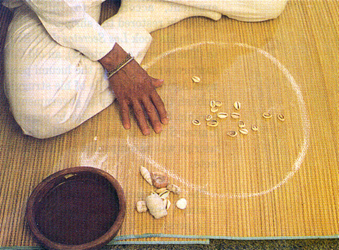
Along with your vision, I also believe your stories are important—the story of who you are, the story of where you’ve been and where you aspire to go is crucial. Your story might be all that someone else needs to hear in order to make sense of their life. Your story might inspire someone else to move on, to speak out, to stand up. Your story might inspire someone to stop wasting this gift of life that we’ve all been given. The human spirit is always in need of one more compelling reason to keep moving on.
Finally, I believe you must honor your heart. Years ago, I became familiar with the expression, “The heart always knows, the head always doubts.” So, even if you feel unsure of yourself and you’re not sure what your contribution will be, you don’t have to figure it out all by yourself. You just have to trust the leadership of your heart.
A few weeks ago when I consented to deliver this talk at Harvard University, the reality hit me. I began stressing about what I might say to scholars in such an esteemed setting. Then a voice spoke two words to me: “James, chill.” The voice assured me that all I need to do is “connect with my vision and share the vision, connect with my story and share the story. Connect with my heart and channel all that comes from the heart.”
And so I’m passing the same message on to you. The sacred vision, the sacred story and the wisdom of your heart, don’t ever leave home without them. Because if you do, you walk away from all your spiritual power.
Why has my vision led me to create the film, Across the King’s River? Because the brightest minds among us insist that we need to look to Africa if we hope to understand the art of healing and all the forces that impact our mental, spiritual and physical well-being.
Several years ago, while doing research on African healing traditions, I interviewed Dr. Charles Finch, a physician and author who once served as Director of International Health at the Morehouse School of Medicine. “There are still aspects of health that modern medicine does not address and more and more people are finding answers in African healing traditions and other alternative healing modalities,” Finch told me.
During the interview, Dr. Finch shared some of his experiences in Africa, stories of distance healing and distance diagnoses, healers chanting illness away. He told that he witnessed the great Senegalese healer, Madame Fatou Seck, heal a patient suffering from Turret’s Syndrome. He spoke of healers so attuned to their calling that plants come to them in dreams to reveal their healing properties. Dr. Finch also says evidence suggests ancient African healers had extraordinary clinical skills; surgeries such as C-sections were performed in Uganda prior to European arrivals on the continent.
African healing is “spirit centered,” he explains. “The spirit of the patient and all forces (energetic, spiritual, mental) that impact our well-being must be addressed.” In short, Dr. Finch adds, “Being healed isn’t the same thing as being cured. Western medicine makes you feel better. African healing changes your life. ”
David Cumes, M.D, a successful Santa Barbara-based surgeon and initiated sangoma, or medicine man, also believes that the West has much to learn from the healing traditions of Africa.
“It’s time we started paying attention to the spirit world and to our ancestral roots,” writes Cumes in the book, Africa in My Bones. “Western scientists believe they are on the cutting edge of the new age of healing. However, we may have missed the boat entirely. We may be technical wizards, but when it comes to the human spirit, we are only beginners. African wisdom can teach us to get back to what we once knew and who we once were,” says Cumes.
The field of psychiatry could also benefit from traditional African healing perspectives. Malidoma Some, one of the leading voices of African spirituality, says modern psychiatric care should reconsider how we define and treat mental illness. In Dagara culture, the onset of mental illness is seen as the birth of a potential healer.
“A person going through a mental crisis has been chosen as a medium for a message to the community that needs to be communicated from the spirit realm. Mental and behavioral disorders of all kinds, signal the fact that two obviously incompatible energies have merged into the same field,” says Malidoma. Malidoma says he was shocked the first time he visited a mental institution in the U.S. Some patients were screaming, he recalls, a few were in straightjackets, and others were zoned out on heavy medications. “So this is how healers who are attempting to be born are treated in this culture,” he said to himself. “What a loss that a person who is finally being aligned with a power from the other world is just being wasted.”
My film’s revisiting of the first medicine and the first wisdom of the world comes at a time when we need it the most. The report card on African-American health in the U.S. is horrific. Heart disease is the leading killer for ethnic minorities in the U.S. Fifty-percent of African-American women are expected to die from heart disease. One-third of African Americans suffer from high blood pressure. African-Americans are twice as likely to be diagnosed with diabetes than whites. Cancer is the second leading cause of death for ethnic minorities. African-American women are 36% more likely to die from breast cancer. African-American men are twice as likely to die from prostrate cancer than whites.
Our children are at risk in more ways than we can imagine. Several years ago a leading Bay Area newspaper reported that violence in the inner city is so high, that statistically, our children have a better chance of surviving a war in Iraq or Afghanistan than they do living at home. Youth from low-income families are not the only ones at risk. In the book, The High Price of Privilege, Bay Area psychologist, Madeline Levine, says America’s newly identified set of at- risk children come from wealthy, highly educated homes. These children suffer from the highest rates of depression, substance abuse and anxiety disorders in the country. “The most current data suggest that as many as 30 to 40 percent of twelve to 18-year-olds from affluent homes are experiencing troubling psychological symptoms. Ten to 15 percent of those who suffer from depression eventually commit suicide.”
Poor children at risk, wealthy children at risk, the ancient African mind tells us that everything is connected. The message of The High Price of Privilege is a signal to us all that materialism and consumerism are not the answer and we must organize our lives around that which truly matters.
My first trip to Africa was an attempt to save my eldest son’s life. I’m not even sure how he slipped into darkness. He had what we thought was a stable, two-parent home and my wife and I stressed the value of education, physical activity, culture and the arts. Yet he started embracing the life of the streets. I remember the arrests for stealing and arson. I remember one evening how I planned to bake bread for my family because my father also used to bake bread, and when I bake bread I feel as though I’m baking bread for him. But I didn’t have the heart to knead the dough that evening because two parole officers banged on our door, stomped through our house and led my son out in handcuffs. I remember how we visited him in Juvenile Hall one Thanksgiving Day, and I remember being too ashamed to tell my mother that her grandson was behind bars. I also remember how I lost weight during this period, and how I felt so much pain in my chest one afternoon that I thought my heart was going to stop beating.
During this crisis, I was constantly assured that the spiritual elders in Africa could help my son.
In fact, my challenges with my son also came with an unexpected blessing. One night when I was frustrated with my son’s behavior, I went for a spiritual reading with an Ifa diviner from Nigeria who happened to be in town. I went to the reading hoping to get insight into my son, and I returned with insight into myself. During the reading, it was revealed to me that I’m destined to be an Ifa diviner too. I felt so recharged by the reading that part of me wanted to thank my son for creating so much trouble in the first place. He was the messenger that led me on the road back to my ancestors.
As I planned my first trip to Nigeria, to be initiated into the Ifa spiritual tradition, my wife pleaded with me to take our son because we feared any day could be his last in the streets of East Oakland.
Nigeria was a wake-up call in many ways. It was hard to stomach the grinding poverty, the pollution and the gun-toting soldiers who demanded bribes at every check point along the route from Lagos to the city of Ile Ife. I began to question whether or not I have what it takes to be an Ifa diviner. And I’m embarrassed to admit that I was worried my son might go crazy when the Ifa priests and oniseguns (medicine men) gave him a medicinal concoction to drink. I was relieved when I found out that medicine men (and women) in Nigeria ingest some of their own medicine in front of their clients in order to prove it is not harmful. I couldn’t help but wonder if Western doctors would be so quick to prescribe medicine if they had to take some of it themselves.
Shortly after we returned from Africa, my son’s therapist told me. “I don’t know what happened in Africa, but your child is new and improved.” When I look at my son now and I reflect that he’s not in trouble with the law and that he works two jobs, and has children of his own, I think of those healers in Nigeria and their powerful work with the orisas, the spiritual forces that have guided and protected our ancestors since time immemorial. And when I see him at the kitchen table at night helping my little grandson do his homework, I am filled with gratitude for our elders.
The notion that we and we alone are responsible for our health and well-being is a Western idea, not an African concept. Africans insist that so many of our woes may be caused by non-existent or dysfunctional relationships with our ancestors. Some of our troubles are an attempt by the ancestors to get our attention, so that we can make needed change in our lives.
Indeed, the Dagara of West Africa say trouble is our best friend. Without trouble, we seldom reach beyond ourselves for answers. Trouble, in many ways, is often the gateway to the divine. It is a message. What are your troubles trying to tell you? When I think of my troubles over the years and how healers and diviners in Nigeria have always been there to guide and protect me and my family, I know that I must persevere and make this film in honor of them.
The title of my film is inspired by a Yoruba proverb that says one cannot challenge a command from a king. The Yorubas describe a proverb as a horse that can guide us home if we lose our way. This particular proverb is used when one has a difficult choice to make or when one must deliver a difficult message. It implies that you could lose your life in the process. When the king asks you to swim across a river, even though odo b’akun (the river is full), you dare not refuse the king’s command.
A Nigerian friend taught me this proverb many years ago. I have always interpreted the king as a metaphor for our soul. Our soul demands more of us. It challenges us to seek purpose in all that we do, and yes, there’s always the potential for danger when we follow the heart. But what choice do we have? To not pursue your calling is equally dangerous. Indeed, the king’s river proverb reminds me of the Dagara proverb that says: “If we go forward, we die. If we go backward, we die. So hell, let us go forward and die.”
As I’ve reflected on this proverb over the years, I’ve come to believe you can go very far if you organize your life around one theme that speaks strongly to you. You can become a force of nature that the world has to deal with. This proverb inspires me on my journey to this film. As I’ve reflected on this proverb over the years, I’ve also come to believe that we put the lives of others at risk, when we don’t do our real job — the job that we feel we were sent to earth to do. It is crucial that we report to our real work in the universe.
One of my tasks in Across The King’s River, is to show the link between African spirituality and modern science. I will be interviewing two brilliant mathematicians in the film: Christopher Brown, an Ifa priest and computer scientist, and Ron Eglash PhD, a renowned expert in African fractals. Both Ron Eglash and Christopher Brown will share their unique insights on the binary code which is one of the greatest contributions of African sacred science to the modern world.
It has been said that modern civilization is based on the binary code; it’s the mathematical language that is used in computer technology. The binary code originated in African divination, says Ron Eglash. “Every laptop, every digital circuit, every PDA system in the world began in African divination,” insists Ron Eglash. African spirituality has been demonized for centuries, yet the Western world makes use of the binary code every day. As a filmmaker, I will share this story with the world.
Across the King’s River will also draw attention to the crisis of disappearing languages and cultures. Scholars say that the world’s languages are dying. Ninety percent of them are expected to die out in the next 100 years. This is a tremendous loss because the wisdom of humanity is encoded in language and most of the world’s languages have not been adequately documented. The crisis affects all of us in some way, even though it might be difficult to measure. It may compromise our ability to survive in some way.
This summer, we go into the production of Across The King’s River knowing that we have the support of the ancestors. The Yorubas say that one who makes a pact with the ancestors becomes immortal. To that, I say where one vision ends, another vision must surely begin.
